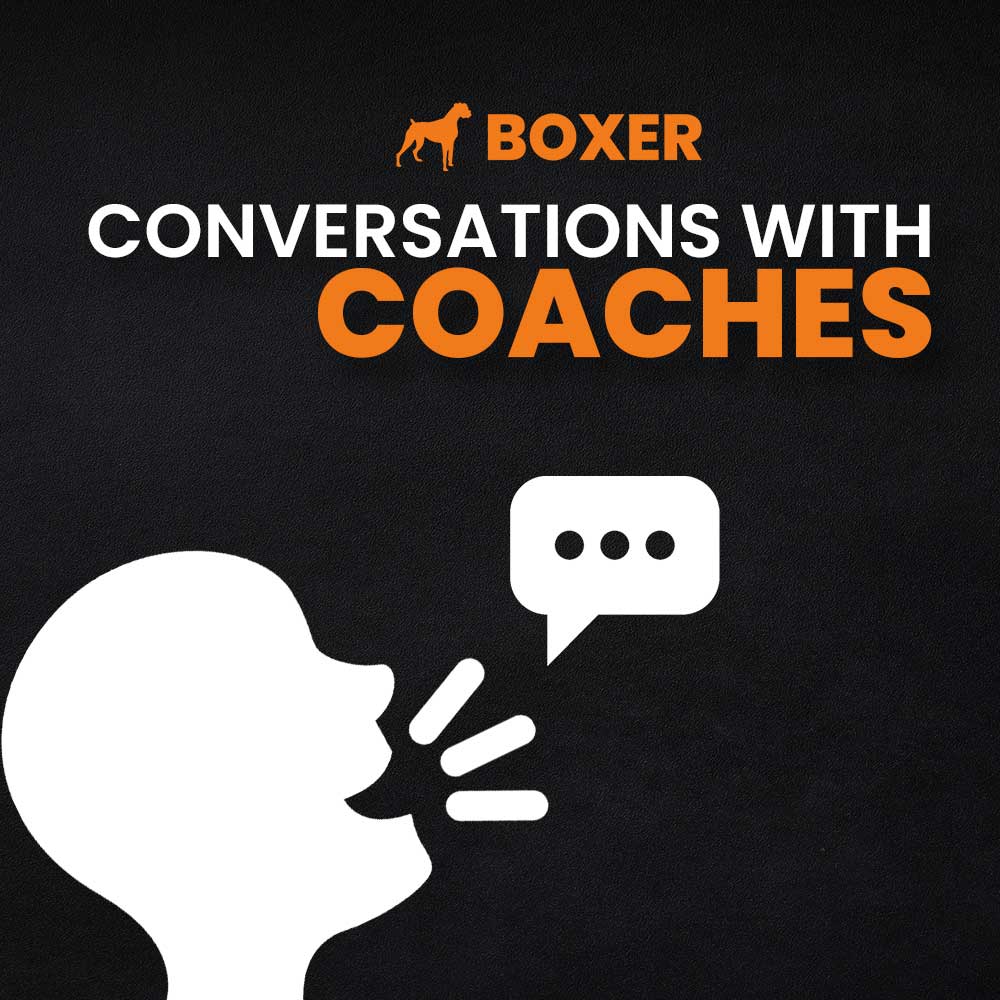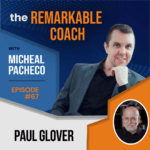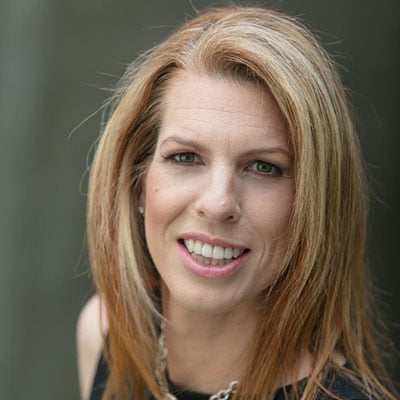Kevin Stafford 0:00
Hello, everyone, and welcome to another special, quite special episode of the conversations with coaches podcast. Still your regular host, Kevin still drinking coffee even though we’re called conversations now, and I am extremely pleased to have my first returning guest, Paul Glover, whose Episode You might remember from a few months back, I believe at this point, maybe too. Paul is a C suite performance coach with over 20 years of experience as a federal court trial lawyer. He’s a passionate storyteller who believes in the power of narrative to influence and educate the business world, personal life and even courtrooms. And we talked a bit about that and how he got his start as a coach in his coaching practice the last episode. In this episode, we’ve got a specific topic that I am extremely excited to talk with Paul about. So, Paul, thank you for being the very first part two, for the podcast.
Paul Glover 0:47
You know, Kevin, it’s quite a privilege. And I certainly appreciated the invitation. And obviously, the opportunity, I enjoyed the first podcast. And I can tell you, if I don’t enjoy the first one, they’ll never be a second one. So it shows you how much I enjoyed it.
Kevin Stafford 1:03
It’s so good to hear. And I’m so pleased. And we talked a little bit already, like we basically got, we jumped into the topic. And I just before I realized that we were already talking for like over five minutes, I was like, you know, I just need to stop this hit record. And let’s talk about this topic, it is a rich one that I personally, I think you feel the same, it just doesn’t get talked about it enough. So I’ll go ahead and set you up with the with the topic. And we’ll just go back and forth for a little while. So this is going to be a conversation about I’ll quote, you hear the value of failure in achieving success, which is a very succinct way to put it. Because obviously, in most people’s minds, they have failure and success at the opposite ends of a spectrum, which is probably not the right way to look at it, given how much success relies upon the lessons of failure in order to occur. We’re gonna talk about that more, but I’ll tee up there. So let’s start with the value of failure in achieving success.
Paul Glover 1:56
Well, absolutely. And again, as a, as a C suite, executive coach, I deal with very successful people. And the problem is, and as I told anyone who enters my program successfully, you’re going to be one of the hardest persons for me to coach because you’re successful. And we don’t want to embrace anything but success. And a part of my coaching program is explaining the concept of why failure is so important to continue that success. First, success is only today. Tomorrow is a completely different game. And I find it so interesting because if the pandemic didn’t teach us anything, it should have taught us about the black swan event. The item we’re not even looking for thinking about conceive could happen to us that does. And I truly believe that at least half of our existence is exactly that. The unexpected, terrible thing that we either caused participated in or just randomly occurs that we have to deal with. Now, that’s why there’s so much talk about resilience. The interesting thing with resilience is it is recovery from failure. It’s not talking about failure. It’s talking about recovery. And we always talk about that in the context of it happened. And when I talk to people about how it happened, they were very uncomfortable. Because first I’ll use myself as an example from the first episode, everyone knows, I went to prison for five and a half years. And I spent the first two years with revenge fantasy, I blamed everybody in my life. For my being in prison, year two was the reflection to finally occurred when I recognized that I was responsible. And from that point on, I was given enough self awareness and I could engage in change. Because I accepted respondent, actually, there is a term in the law, accept responsibility. When I stood before the sentencing judge, he offered me the opportunity to reduce my sentence by 18 months by publicly accepting responsibility for my crimes. Now think about this. I’ve already been found guilty, I was gonna go to prison, he was getting ready to sentence me. And I ended up with a seven year sentence, he would have knocked 18 months off my sentence, if all I had to do was admit that I did it. And I refused. Now, that’s how much we want to avoid acceptance of our failure, our responsibility for failure. And I think the leaders absolutely live within that mindset. Because they look at it and go, if I say that I if I accept the failure, the responsibility for it, I look weak. I look like I don’t know what I’m doing. No one’s going to follow me if they think that I could fail. And the reality is, I believe that that is absolutely what connects leaders to their followers. because everyone has to accept the fact that first they’ve had failure. And unfortunately, you’re gonna have more failure. I know that I talked to people often about the comfort zone, because leaders who are successful stay within their comfort zone, they become more risk adverse, because suddenly they have something to lose. Interestingly, when we talk about startups, it’s how much they risk. Because what do they have to lose her startup? If they succeed, they blow it up, right? If they fail, everybody goes, well, of course, there were startup that was never going to work. So once you become successful, you suddenly and we talked about this earlier, you armor yourself with that. And you don’t want people to pierce the armor, because that would show that, again, you’re not who you think you are, or how what your image looks like. Imposter syndrome is something we talk about, people don’t really accept it for themselves. So the reality is, they’re in their comfort zone, and they stay there. And one of the conversations I have with them early on is, if you take you’re going to avoid failure, because you’re going to stay in your comfort zone, you’re wrong. Because I believe that the nature of failure is to find you to seek you out, whether you like it or not, and it doesn’t matter what you do to try to avoid it. You can’t. It’s nature, its life. Yin Yang 5050, that symbol to me is truly authentic. And it absolutely is how we have to deal with failure. So my contention is, rather than avoid, seek it out, go find it, embrace it, because failure is, is life, God, whatever you believe that telling you, there’s a lesson you need to learn. And here it comes, whether you like it or not, if you’re smart, you go, I’m going to find that lesson, I am going to go out and I’m going to, I’m going to seek what could hurt me, and I’m going to embrace it. And I’m going to learn from it. And to me, that’s where we start to have a relationship with failure that becomes healthy. rather than attempting to run away from failure, you can’t do it, it’s impossible Stop, stop wasting your energy. Anyway. So that’s where I go for this. And, and that’s a part of the process, I believe of a modern day leader to accept the fact that it is going to happen, be authentic about if it has happened, share the story. You mentioned narrative. A part of everyone’s narrative is the journey. And in the hero’s journey has got to have adversity. Otherwise Little Red Riding Hood is just a pleasant walk in the woods.
You got to have the wall, you’ve got to have the whip. And by the way, Little Red Riding Hood, on the way to grandmother’s house knew she had to go into the deep dark for us. But to get to grandmother’s house, she made the journey accepting the fact the wolf could appear. That’s where we’re at right now. Especially now post pandemic, it’s even more important for authentic leaders to show their vulnerable to share their narrative to talk about their failure, so that they can make a real connection on a on a humane humane level with people who want to be with them on the journey.
Kevin Stafford 8:37
So much there that I love and I love the way that’s like, there’s almost like a re a relearning of the language that is required because we equate things we make them synonyms, when really they are distinct elements of human existence. For example, vulnerability, which is a word that like as you were talking before, you said the word that’s it’s going off like a big light in the back of my head like vulnerability vulnerability, a lot of people will equate that one to one with weakness. That is incorrect, objectively speaking, and yet, we constantly make that connection. Because somehow if we’re vulnerable, if we’ve got our armor, we don’t have every little spot covered, that somehow we’re weak. And that weakness is somehow a negative. It’s it makes it makes us less somehow there’s all these definitions that we’ve just got, like we’ve got tied together in this tangled knot that really prevents a lot of people from realizing how powerful the lessons of failure can be and how important that failure and vulnerability and that sharing is to actually making connections with the people who you say you’re leading. You say you’re a leader and you’re leading people, those people who are you are leading have to be able to connect with you. And if you’re in pseudo metal, not let anyone touch you for fear of being perceived as weak or vulnerable. Then you’re never going to connect and you’re not going to be able to lead you might still be successful by a certain metric, but you’ll no longer be effective. And that sucks. Like you were saying, dude, that failure is hunting you, it is coming for you whether you want it or not, no matter how high of a tower you put yourself in, no matter how much armor you wear, it will find you. And I just think this is I think this is one of the most important lessons right now that that leaders who want to be good leaders who want to stay good leaders and be a part of our present, and future, I think this is one of the if not the most important lesson they can learn that we can learn.
Paul Glover 10:30
I would agree because I believe that talking about your own failures, the organization failures, absolutely makes that connection you just said about being vulnerable and being authentic. Also, it shows that you have lack of fear, the concept of what fear does to us, because what do we face? What are we fearing as a leader, we’re fearing failure. That’s what we fear. And once that has gotten its claws into us in that negative fashion, it stops us from reaching our potential. And that’s the reality when I when I coach, the person who is successful. My comment to them is this is a difficult journey. But it’s all about your potential. Because you obviously have done well. But have you done enough? Have you reached the end of your story? And the reality is no, I don’t believe that people who are in the coaching process have an itch that they have to scratch, and that it’s yours, I think I could be better. I think I could do more I think I could improve. But it’s a journey that requires that I accept the possibility of failure as a companion. But every step of the journey, failure works behind you just slightly out of view, you can’t see it, you know how you read that dark room and we turn our head to see what’s there. And it’s nothing. The reality is that’s where you’re it works. And it continues to seep into our consciousness, and then it seeps into our actions. If we embrace failure as inevitable, and seek it out by doing the things that require risk, and doing the things that require vulnerability, then our narrative changes. And once our narrative changes, we attract more people to our journey. And so to me, it is absolutely essential. It’s just a part of being a successful leader is a part of being a human being. And rather than rather than hinder yourself and constrict your growth, be open. I mean, by the way, you’re talking to someone who had the ultimate failure. I had a I was a very successful lawyer, I had a wonderful life. And I experienced failure on a catastrophic level that not only took my profession away from me, but made my family, financially destitute, as well as devastated emotionally. I was absolutely just floored. And yet as I thought about it, and the lessons that I had to learn, were all about humility. Were all about lack of ego, my ego disappeared, I was you couldn’t find anyone who had more hubris than I did. And it went away. It took a while, but it went away. And I accepted that as a good thing, because it suddenly opened me up to not only understanding myself, but to also understand other people. Because we often don’t, right, we look at them, when we have judgmental, we have biases, the opportunity to say, Listen, I was the ultimate and failure. Therefore, whenever you have to talk to me about can’t get any worse. Therefore, be open. Let’s have that conversation, because it will provide the stepping stones necessary for your next move forward. It’s a weird conversation. But when you have it with people, they relaxed and they’re relieved to be able to tell someone. And in the coaching process, obviously, it’s confidential, that ability to take the armor off and be vulnerable about your failures. Absolutely clears your mind. It’s a cleansing process that suddenly opened you up to possibilities you didn’t think existed before.
Kevin Stafford 14:18
And it might feel weird at first maybe awkward, definitely scary. But it’s not going to take very long during that process before you realize that this is the most natural thing you could be doing that that awkwardness, that weirdness that sense of fear or trepidation. Once you take the first couple of steps that will melt away just like eventually that ego and that hubris. Well, that takes time. I’m really glad you said that too. Because that ego is a tenacious grasper it holds on for dear life. It does take some time. But once you get started, the way that you just feel like you’re doing the most natural thing by being vulnerable and by sharing by being open it quite frankly, it’s got this beautiful momentum to it. What are just like once you really do get a taste for what I think of as the good life, which is open and vulnerable and empathetic as a leader. And as a human being, once you get a taste for that good life, you don’t ever want to go back you stone.
Paul Glover 15:11
Not only that, but you want to share it. So what I find so interesting is the person who suddenly has that. And they want to share that because they realize how good it is, and what it means to the next person. You know, my contention is you have to pass stuff like this along, it’s not yours to hold in Hoard. What you say is, if this worked for me, I believe I know someone that it will work for also. And therefore we start to see a lot more compassion, a lot more humility, a lot more caring, that suddenly gets built into the relationship. And to me, that’s where we’ve got to be going at this point as a society, as well as companies, because what we’re asking people to do now is always above and beyond. And if we want them on that journey with us, whatever that journey is, we have to make sure they understand there is sacrifice, there is failure, but we’re going to be in this together, and we’re going to support each other, we’re going to learn our lesson, and we’re going to continue to move forward to the purpose, whatever that purpose is, that has bought us together to achieve. To me that is the definition of leadership.
Kevin Stafford 16:18
Yeah. And then to me, it is the definition of the good life once once I got a taste for how that could be where it’s just where basically the fear and granted you don’t ever you never fully overcome that fear of failures. For some of us that’s ingrained, really early and really deep. And it’s always going to be around, but you can overcome it. And that that feeling that is the way that it is when I’m basically asking myself the right questions, instead of spending all of my energy and effort and thought and emotion on protecting myself or trying to shape myself into what I think I should be in order to be a good leader and just commit to that openness. I started asking the right questions. How do I have more to grow? Yes, I do. Let’s do it. How can I help? Who can I help? Can I still help answer to that is definitely yes. And it’s I feel like that’s the dual, the dual parallel paths that as you get get, grow into your leadership and commit to openness, that those are the those are the questions that matter. It’s like, do I have more to grow? Yes, I do. Alright, let’s talk about how we could do it together. Can I still help? Can I can I be of service? Absolutely. Share, share, share. It’s just, it’s amazing how natural it feels. And every time every time it does happen, it still feels genuinely joyful. Like there’s still a sense of all, no matter how many times it happens, where it’s just like a beautiful sunrise, and you’re like, this might be the most beautiful moment I’ve ever encountered. And I know it sounds it sounds a little bit pie in the sky. But neither of us are blowing smoke up each other’s breath for the audience. But this is this is real. This is essentially the way that it is. And I love talking about it. And I love sharing it. It’s great.
Paul Glover 17:52
One last thing because I wrote it down here, and we were talking shame. When I came out of prison, my my family was ashamed. Because I was still a part of that family, thank God. And my wife and I had a serious conversation because at some point, she said, Will you stop telling people, you went to prison? And I said, No, I won’t. She said, every time I hear you, you’re telling somebody that I said, you know why? I’m not ashamed of it. I’m ashamed of my behavior. I’m not ashamed of me, I have overcome that. And the point of this is to make sure other people aren’t ashamed of their failure, either. We need to remove we talk about fear a lot connected to that is shame, not shame, of necessarily fearing failure, but shame of what we did that caused us to fail in this instance. And so the reality is we need to erase those things from the conversation doesn’t mean that they don’t exist. But what we do is we share it, and if we share it, it dissolves. Shame goes away. You know, I back away, I can’t say that I without shame. When I think back obviously, if I want to live in the past, I can be full of regret, I can be full of fear of failure, I can be full of shame. The problem is, once you do that reflection and you accept a responsibility, then it’s time to shed those things. And be a better person, if we can all be better. And if we can eliminate these things that stop us from doing that. And by the way, you know, one of my things is you need to relate not manipulate people who want to manipulate us and they’re all around us, especially as leaders, they will use our fear they will use our shame as levers that they can push to get us to do what they want. If we eliminate those levers, then they’re not past it’s not possible to do that. By the way those levers force us to do another thing that we’re not going to be happy about. Not going to appreciate not want to do but feel forced to do because of the pressure those levers pace on us. So certainly doing that cleanse. It was just it was fantastic. And it just makes yourself and everyone around you better.
Kevin Stafford 20:12
Man, I could have this conversation for the rest of the day. This is honestly, and honestly, we should all be having this conversation. Often I feel like the more light that shines on this topic, the more truth we derive from it, the more we understand that, again, failure is not your enemy, just because it’s hunting you and it will find you doesn’t make it your enemy. In fact, it wants it has gifts for you and attend if you’re just willing to embrace it, it’s waiting for you. I just, I love this conversation. And to all of you who are listening, both Paul and I are more than happy to have this conversation with you at the drop of a hat. All has based his entire coaching practice around this, it’s an obviously you’ve listened to him speak, he is vulnerable, he is open. And he has processed things in such a way that they are shareable with you. And I love that we kind of pivoted into talking about leadership models a little bit. And when you were talking about the, the levers of those kinds of levers that get used, I immediately thought of that command and control style of leadership, which has been so prevalent for so long, and how I’m I can’t speak to whether or not it was ever a good idea, or ever the right way. But I can certainly speak to now where it is just it is not a leadership model that’s going to work. There are other ways there are better ways to lead than that command and control model. And I think I think you offer that. And that’s one of the reasons why I love talking with you having you on and just I love that you exist.
Paul Glover 21:38
Thank you so much, Kevin. And by the way, I absolutely agree with you, I want the I want the end of the 200 year war that created command and control. And that was the industrialized industrialized nations that suddenly had to have the assembly line worker who had to be controlled according to the person who was in charge to stand there and do this stuff that was absolutely mind numbing, and detrimental to their health, where we should be beyond that this is our opportunity to forge a different relationship between those people who do the work and those people who have the resources or own the company. So that becomes a partnership. But this is this is where this item becomes the way to bridge the gap. That’s how we develop relationships and connections that truly matter. And I’m hopeful hopeful that there’s been enough of a break in that command and control attitude to allow this to happen.
Kevin Stafford 22:39
I think we’re gonna have to do a part three, where we just do a historic exploration of leadership and how it’s developed and grown across the centuries because I just just bring that up and talking a little bit about like leadership throughout history and just like, oh, that’s a whole like Hardcore History topic. I feel like we could talk about that for five hours. But we’ve already gone past our I just I couldn’t help myself. It’s too great. Paul, thank you for coming. Thank you for sharing. Thank you for your openness, and your commitment to service. I just I love who you are and what you do. And I’m just grateful that you came to share it today.
Paul Glover 23:09
And Kevin, as always, I appreciate the opportunity. I appreciate your your involvement in the conversation, things that you say immediately open up my mind to something that I’ve suddenly realized, I wanted to say just just recognized it. So thank you so much. And thank you for your audience who listens.
Kevin Stafford 23:27
Yeah, thank you to all of you who are listening. I hope you enjoyed this. And again, you want to talk about this. You want to go deep about this. Paul is here Paul’s around, find him on LinkedIn. Find him on his website. We’ll have all the links in the episode. And let’s keep the conversation going. This is an important one. Thank you all for listening and we will talk to you again soon.















